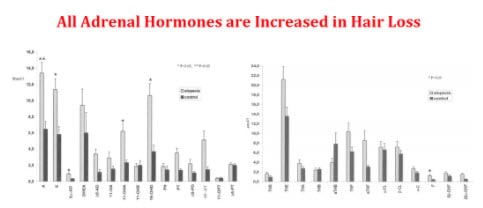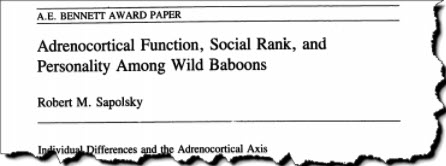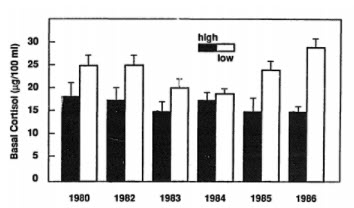
[cmamad id=”14678″ align=”center” tabid=”display-desktop” mobid=”display-desktop” stg=””]
Game changer hair loss treatment…no chemicals involved.
—–Important Message—–
Big Pharma makes $30 billion a year from diabetes treatments. They wouldn’t make any money from a cure…
No problem for you, though – you may be able to fix diabetes yourself.
Huge profits are the incentive for Big Pharma companies to come out with all kinds of dangerous chemicals…
…instead of finding one cure that fixes diabetes for good.

I was shocked when I learned that Big Pharma doesn’t have to prove that their diabetes chemicals make you live longer or healthier.
They just have to prove that the chemical somehow lowers your blood sugar.
In other words, if it lowers your blood sugar within a year it doesn’t matter if it kills you in 10 years…
This is how a lot of diabetes chemicals get safety-approved even though they are actually very dangerous.
And, gradually, these guys who are taking these dangerous chemicals develop cancer, or kidney failure, or heart problems.
But you don’t have to buy into using Big Pharma’s dangerous chemicals… You can reverse diabetes yourself by following this simple system.
Click here to reverse your diabetes without using Big Pharma’s dangerous chemicals.
————
The secret to stronger, healthier hair revealed…
There’s good reason to think that subordinance can actually contribute to hair loss.
The reason is simple:
Cortisol has been shown to cause hair loss, and subordinance has been shown to increase cortisol in primates.
But we humans are primates and we share over 90% of our DNA with the other primates…
We’re an evolutionary offshoot. So it makes sense that primate scientific findings are relevant to us.
The androgenic hypothesis for hair loss is false.
However, most of the scientific research community is apparently still blinded by it.
Studies conducted on stress, cortisol, and primates often provide the most useful data.
This has been tested. And the results show, predictably, that hair loss is correlated with cortisol in both monkeys and humans.
[cmamad id=”14679″ align=”center” tabid=”display-desktop” mobid=”display-desktop” stg=””]
But this study shows how social rank and subordinance can also contribute:

These scientists examined the cortisol levels in 99 rhesus monkeys – animals that experience hair loss in captivity.
They took pictures of the monkeys and measured their hair density with a computer scanner. They also measured their hair cortisol.
This is the most accurate measure of cortisol, as it accounts for the hormone at the follicle itself.

They found significant correlations between alopecia and hair cortisol – much greater than you’d expect from chance alone.
“Overall, monkeys with hair loss showed higher levels of hair cortisol than did fully haired monkeys (72.4 vs 54.4 pg/mg).”
This occurred at all the facilities where the study monkeys were living – except at Facility C.
Facility C had only two male monkeys in residence (not enough male monkeys to cause significant social ranking issues).

Facility A monkeys showed the greatest difference in hair cortisol levels – but that might have been due to an asshole zookeeper.
But the monkeys at Facility B also showed a very significant trend in hair cortisol.
“Once again, hair cortisol varied as a function of alopecia status and facility, and these findings were unaffected by the body weight or age of the monkeys.”
“Monkeys with hair loss showed higher levels of hair cortisol than did their respective counterparts…”
And these findings aren’t limited just to non-human primates.
Increased cortisol has also been the most consistent finding in humans with alopecia.
The three following studies proved this consistently.
These studies were conducted in different countries and exactly ten years apart:

The Australian researchers who conducted this 1981 study expected to find increased androgens.
Apparently, this was just on account of the two old Hamilton articles they cite – published in 1941 and 1952.
But less was known about biochemistry back then.
Such as the fact that the adrenal glands have androgen receptors…
In humans, males have larger adrenal glands and that gives them the ability to produce more cortisol.
This allows men to mount a quicker stress response when dealing with predators – or bosses or other bad guys.
But the 1981 researchers were apparently disappointed when they found no elevated androgen levels.
What they found instead was increased adrenal steroids, such as cortisol and its metabolites:
“The lack of elevation for serum androgens is noteworthy and is in contrast to the general elevation of urinary steroids for many of the subjects. Since urinary steroid levels mainly reflect adrenal production, elevated levels would suggest hyperadrenal activity.”
Nonetheless, Big Pharma companies either remained blind to this…
Or they simply disregarded it because they had 5α-reductase inhibitors in development.
After all, one must not risk losing investments.
Ten years later (about the time finasteride hit the market) the same results showed up again:

In 1991, Viennese researchers found absolutely no significant elevations in androgens in 65 men with hair loss.
They didn’t cite Hamilton (good for them) but they did cite Valerie Randall instead. Things were getting more sensible by 1991.
“…no significant elevations of DHEAS (dehydroepiandrosterone), free testosterone, testosterone, and SHBG (sex hormone-binding globulin) were to be found in male hair loss.”
Valerie Randall would later go on to show that testosterone actually stimulates hair growth in scalp follicles when applied directly, as it does with beard follicles.
But once a chemical such as finasteride gets millions of dollars behind it, they have to dump it on the public no matter what the science says.
“A most interesting aspect of this investigation is the role of cortisol.”
And another decade later, in Europe, we get the same finding again:

But this study measured a larger number of steroids (30) using a more elaborate technique.
This study cited the two previous cortisol studies, so they knew what to expect.
Nonetheless, they gave a nod to the pharma company Merck in what sounds like something from a Proscar™ pamphlet.
After all, the 20-year patent was still in force.
Researchers will often parrot the Big Pharma line so they can get funding for the next study, no matter how unrealistic.
They found an increase in all adrenal steroids…
Proving again that adrenal hormones are doing this, not androgens directly.

Cortisol will even cause hair loss when applied topically, as the data sheets on hydrocortisone will show you.
Maybe cortisol is even be doing this by upregulating ptgds, the enzyme that creates prostaglandin D₂.
It has been shown to do that.
But cortisol can’t do it alone. It also needs dietary linoleic acid…prostaglandins cannot be made without this fatty acid.
“The monkeys received a nutritionally balanced diet supplemented with additional fruit, produce, and grains.”
And the rate at which this prostaglandin is formed also depends on cytokines such as interleukin‐6 and interferon gamma – these are two other main factors in hair loss.
(Vitamin D is needed to transcribe hair keratin KRT31.)
But cortisol is a massive factor. With less cortisol, less prostaglandin D₂ formed and we get more PGE₂ (prostaglandin E₂).
This is important to know. But what increases cortisol?

Baboons are genetically very close to humans and have similar social patterns.
They fight a bit. They intimidate and posture. But they spend most of their time foraging for food and sleeping.
But during more tranquil times a dominance hierarchy emerges.
The famous scientist Robert Sapolsky tested cortisol in baboons after first ranking them and then shooting them with darts.
He found a trend. Lower-ranked primates had more cortisol:

The lower-ranked primates had more cortisol in every year of the study except 1984 when there was a drought in Kenya.
With food in short supply, primates were forced to be more cooperative in 1984.
“The hypercortisolism of subordinate males is not surprising. Subordinate males are subject to far more stressors than are dominant males.”
Simply being constantly intimidated can increase cortisol…
And increased cortisol can cause hair loss and insulin resistance.
So being around certain types of people or being stuck in certain situations can actually contribute to health problems.
This isn’t just psychosomatic, as they’d say 50 years ago.
What the brain perceives can actually cause real physical effects on the pituitary, the adrenals, and the rest of the body:
“Stressors, perceived in the brain, cause hypothalamic release of cortisol-releasing factor, which triggers pituitary release of ACTH. This, in turn, causes adrenal secretion of glucocorticoids.”
So we shouldn’t take unfair deadlines, parking tickets, and generally uncalled‐for BS lightly – too much of this can cause actually cause physical harm in the long term.
But Sapolsky also found that coping mechanisms could lower cortisol. This is something we should probably keep in mind…
Even when cortisol is high, its action can be blocked at the follicle with topical spironolactone.
This approach has met with success.
And anything else that inhibits prostaglandin D₂ should be helpful on the road back to thicker hair…
Limiting linoleic acid, immunogenic proteins, and bacterial endotoxins are all things that would help.
“Hair cortisol was higher in humans experiencing chronic pain, undergoing unemployment, engaging in shift work, diagnosed with acute myocardial infarction, and showing alcohol-dependence…”
—–Important Message—–
This herbal brew (bitter, OMG) gave me back my sexual prowess…
I downed the bitter liquid each morning and waited for the results.
At first, nothing.
Then, I noticed my pants were looser. I had started to lose flab.
My wife commented (quite impressed) about my bigger biceps.
She couldn’t keep her hands off them whenever we were together (YEAH!)
I was gaining muscle without working out!
And…oh my… I couldn’t even believe the towel-hanger erections I was getting – and they lasted for a long time.
It anything special about me… It was this potent combination of ordinary vitamins plus a few vitamins I had never heard of.
How is it that nobody knew about this? But they didn’t. This is the first drink of its kind.

Here’s the potent combination that restores your erections and gives you back your sexual prowess.
—————-


Leave a Reply